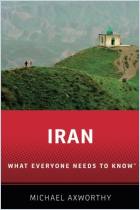
Read or listen offline
Recommendation
Israelis are bombarded by news coverage of terror attacks and surrounded by hostile neighbors, so it’s no surprise that many feel they live under constant threat. In this intriguing overview, Charles Freilich urges Israelis to take a deep breath and welcome a new reality – namely, that they, and their nation, are safer now than ever before. While Freilich serves up a sweeping overview of Israel’s military history, his primary message is that Israel needs to strike a lasting peace with the Palestinians. Much of the world is baffled by Israel’s hard-nosed policy on West Bank settlements, he argues, and the Palestinians have outmaneuvered Israel in the court of public opinion. Thus, the best way for Israel to continue to prosper is to adopt a more conciliatory stance to the Palestinians, and to pursue an ultimate goal of a two-state solution. While Freilich tends to repeat points more often than necessary, the former security adviser to Israel offers a lively and trenchant prescription to Israel’s present-day challenges. While always politically neutral, getAbstract recommends this analysis to readers interested in Israel’s past, present and future.
Take-Aways
About the Author
Charles D. Freilich is a former Israeli deputy national security adviser and a senior fellow at Harvard’s Belfer Center, where he specializes in Israeli national security strategy, US-Middle East policy and Middle Eastern affairs.
















Comment on this summary or 开始讨论